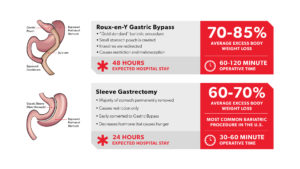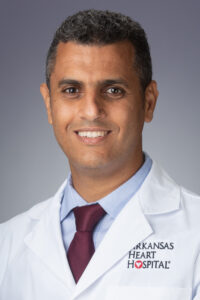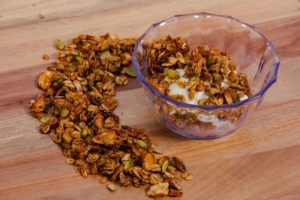If you’ve watched popular “quick fix” weight loss competitions, you may think that cutting calories drastically and exercising for hours every day is the answer to successful weight loss. While this approach works for a time, what you do not see is that very few people maintain that weight loss.
The sobering truth is that roughly 90 percent of people who lose a lot of weight through traditional diets eventually regain it and then some. Where strict elimination diets, pills and weight loss programs fail, bariatric surgery succeeds. In fact, the long-term success rate is up to 74 percent and most people can maintain that weight loss for up to 20 years.
If you’re exploring weight loss surgery, you should know what it is, how it works and your surgical options.

What is Bariatric Surgery?
Bariatric surgery, also called weight loss surgery, is a type of weight loss procedure that helps people struggling with obesity lose weight long term and resolve and prevent obesity-related conditions such as type 2 diabetes, hypertension, sleep apnea, fatty liver, high cholesterol, acid reflux, heart disease, kidney disease and more.
The most common procedures, gastric bypass and sleeve gastrectomy, in some form modify your digestive system to regulate how many calories you can consume and absorb, as well as reduce your hunger signals and restore your metabolism.
“These procedures exert a powerful effect on the body’s hormones,” says Dr. Samuel Bledsoe, bariatric and general surgeon, and director of the Bariatric & Metabolic Institute at Arkansas Heart Hospital. “The stomach isn’t just a big bag that accepts food and sends it downstream. The stomach is in constant communication with other portions of the gastrointestinal (GI) tract, liver, pancreas and even the brain. In obesity, this communication system is broken and dysfunctional. After surgery, normal communication is restored. These procedures are more than malabsorptive or restrictive, they are hormonal and metabolic in nature.”
What is Gastric Bypass?
The gastric bypass procedure has been used since the 1960s and is considered the gold standard of bariatric surgery.
This operation creates a very small pouch, less than one ounce, by dividing the stomach. Food passes out of the pouch through a small opening into the small intestine. Most of the stomach and the first part of the small intestine are bypassed by the food. The major objective is to exclude most of the stomach. The point where the bile and pancreatic secretions are returned to mix with the ingested food is placed several feet down from the stomach.
“This results in a restrictive and malabsorptive that exerts a powerful hormonal and metabolic effect on the body,” says Bledsoe. “This procedure is the most aggressive of the procedures as it relates to weight loss and resolution of medical problems.”
Excess weight loss is in the 65 to 80 percent range on average with the gastric bypass. Excess weight loss is a term that is important to understand.
“If you are 100 pounds overweight, that’s considered your excess weight so 80 percent excess weight loss for you would be 80 pounds,” Bledsoe says.
Not only is excess weight loss outstanding with the gastric bypass, but it also has a profound effect on certain medical conditions.
“The bypass has been shown to resolve diabetes 80 percent of the time and improve diabetes 90 percent of the time,” Bledsoe said. “High blood pressure can be resolved 67 percent of the time and improved 87 percent of the time. High cholesterol is improved over 95 percent.”
What is the Vertical Sleeve Gastrectomy?
The vertical sleeve gastrectomy (VSG) has been done for about 10-15 years. Now, it’s the most common procedure done in the U.S. and at BMI because of its low complication rate.
“During the sleeve gastrectomy, we turn a sack like organ into a banana shaped organ by removing about 80 percent of the stomach,” Bledsoe says. “This results in a restrictive procedure. Removing the top part of the stomach is shown to dramatically reduce and adjust certain circulating hormones, so this also has a powerful metabolic effect on the patient. It reduces the amount of food needed to feel satisfied and allows a person to feel satisfied for a longer period after a meal.”
Most studies put the weight loss for the sleeve as almost that of the bypass, in the 65 to 75 percent excess weight loss range although a few studies have shown that the sleeve is slightly superior to the bypass as it relates to weight loss.
The sleeve also has great results with diabetes, resolving 60 to 80 percent of the time and resolving hypertension 60 to 70 percent of the time.
Our Laparoscopic Approach
Both the gastric bypass and sleeve gastrectomy are performed using a laparoscopic, minimally invasive approach. This means you will be out of the hospital and back to your normal life quickly after the procedure.
The laparoscopic technique involves inserting a camera into the abdomen through a small incision. Five additional incisions are placed in the upper abdomen. It’s then performed using specialized instruments.
This approach has the advantage of smaller incisions, less pain, quicker recovery, fewer wound complications, earlier discharge from the hospital and less scarring while providing the same weight reduction as the traditional open approach.
Learn about gastric bypass surgery recovery time and gastric sleeve recovery time.
—
The Bariatric & Metabolic Institute at Arkansas Heart Hospital strives to make permanent weight loss a reality through personalized attention and innovative surgical options. From insurance approvals to emotional and physical wellness, we are here for you every step of the way. Start your journey by finding a bariatric surgeon.
 Weight loss after bariatric surgery does not always follow a straight path. Sometimes, the number on the scale goes up after weeks of following the bariatric eating plan, which can be disheartening. There’s no need to panic, but weight gain after bariatric surgery should be an indicator to make adjustments to your eating and exercise habits. After all, weight loss surgery is not a quick-fix diet – it’s a tool for a changed lifestyle.
Weight loss after bariatric surgery does not always follow a straight path. Sometimes, the number on the scale goes up after weeks of following the bariatric eating plan, which can be disheartening. There’s no need to panic, but weight gain after bariatric surgery should be an indicator to make adjustments to your eating and exercise habits. After all, weight loss surgery is not a quick-fix diet – it’s a tool for a changed lifestyle. After experiencing a
After experiencing a 


